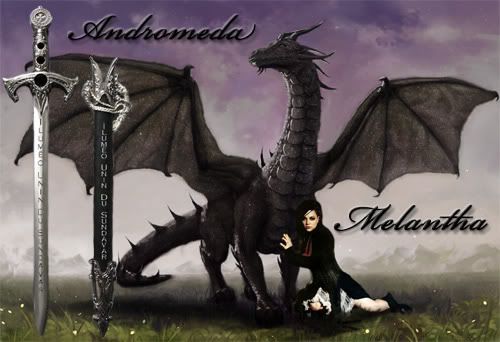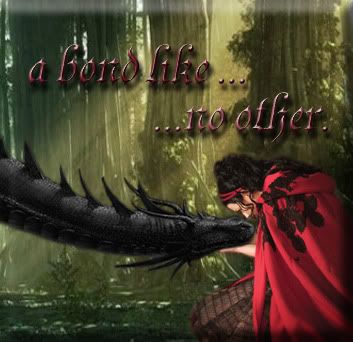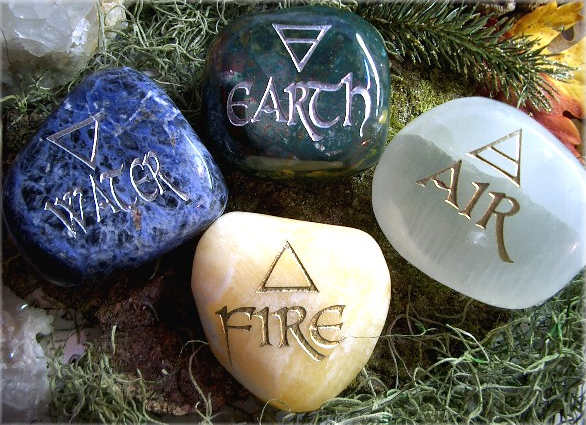Post by Teller on Dec 1, 2013 21:24:55 GMT -5
Your Username: Teller (teller)

(pb: Brittany Snow)
Character's Name: Fàsail Tate, for now
Character's Age: 287

(pb: Brittany Snow)
Character's Name: Fàsail Tate, for now
Character's Age: 287
Character's Attitude: After being a known adventurer among her friends, Fàsail is a learner, always seeking out new things to discover or understand. She isn’t happy until she understands, as fully as she believes she is capable, whatever it is she’s intending to learn. She will pursue it avidly until her interest is sated. She is also an adamant believer that all peoples—dwarves, humans, dragons, urgals, and all others included—deserve the chance to be fully understood and fully respected for who they are, and as such she refuses to hold any prejudice. She is a strong believer in proper justice, giving all the chance to speak and be heard, but she doesn’t tolerate abuse of any kind, to her or to others.
However, losing her memories and half her self has muted many of her personal characteristics. Since waking in the desert she has become uncertain, her mind wanders, she has difficulty concentrating, has headaches, and doesn’t sleep consistently. She is as adamant as ever, but she struggles to express her fascination with certain things, or the strength with which she wants to comprehend. She’s afraid it will frighten people away and she wants very badly just to understand anything at all, since the thing about which she is most confused is herself. She still loves to sing, and knows songs in many languages, though their meanings sometimes evade her still, and the undercurrent of everything she feels is her deep and unsettling lack of awareness about herself.
Character's Race: Elven
Character's Appearance: Fàsail used to have red hair that she kept curled, preferring it to the straight hair of most of her people, but now it’s been sheared roughly against her skin. She has leaf-green eyes, a narrow chin and defined cheekbones, with a narrow nose. At five-foot-eight she is of average height for an elf, though tall for a human woman. She’ll wear whatever is comfortable, whatever feels right at the time, or she believes is appropriate. Boots are better than bare feet because they keep the rocks and hot sand off her feet. For clothes she prefers wearing a plain, worn tunic with a skirt split down the back and parted in the front for riding, with breeches underneath. She wears no jewelry, no ornamentation. Sometimes she will wear a scarf to keep the sun off her head, but it will assuredly be plain.
Fàsail walks with an odd, slightly uncomfortable gait, as though worried about the state of the ground. She also has calluses on her hands, fingers, elbows, knees and feet that she can’t explain, and a recently healed scar running from the middle of her brow to her left ear. The tops of her ears have been cut off and healed, and her left arm is missing from the shoulder, with scars extending from that shoulder down her ribcage. She doesn’t know where any of the scars or missing pieces came from or went and has absolutely no idea where to look.
As to clothing, Fàsail wears whatever is available, and comfortable.
Character's Allegiance: Dragon Riders
Weapons: Fàsail used to carry a single knife--predominantly used as a tool as opposed to a weapon--but she is no longer aware of it now; all she knows in that respect is that she has a deep dislike of weaponry. She used to be an accomplished archer, though not abnormally skilled, and she has good aim when throwing. She has always preferred, when forced to fight, to do it with her hands. She believes half the reason people are so willing to shed each other's blood today is because they can separate themselves from the gore of it with their blades. If forced to kill one another with their hands only, no magic, she believes there would be considerably less violence in the world. Fàsail is competent in magic, but only just; it has never been one of her strong suits and since she's always preferred to accomplish things with her hands, most magic she doesn't regularly use has been lost from her memory. She is rarely comfortable using it.
Other Info: The harder Fàsail tries to remember who she is, where she's from, the worse a headache she has to contend with. She doesn't know why, and eventually if no answers are found she will stop trying to understand, even if that means she has to let go of the possibility of ever remembering who she was.
History: Born in Silthrim, under a name she doesn’t remember, Fàsail was raised to love water. She could spend hours following a single school of fish or watching a cluster of bright seaweed undulating in the windy undercurrents of the lake. Walking on dry land always felt wrong to her, like trying to walk on lily pads, which she had tried multiple times before just to see if she could. When she was young she went to Ilirea for her magical training and returned with an adoration for all things that fly equal to her love of all things aquatic. The air and the water weren’t so much different for those who moved through them as fish and birds did. She contemplated altering her body to better fit the water—more so than other residents did—or the air, to better understand them both, and spent a couple of years with a particular school of fish just observing them and learning all that she could, before returning her body to its more naturally occurring state and resuming her life in the elven communities.
Later she had an inclination to travel, after staying in one place for so long, and she spent decades exploring. She visited all of the elven territories--in Du Weldenvarden mostly staying unnoticed so she could observe rather than participate--before moving on to the human communities, learning fluency in their languages and customs. The humans called her Badger because of her determination when it came to comprehension--if nobody she knew had the answer, she would introduce herself to others until she found the person who did.
After that she crossed the desert with a Rider friend and dragon, and spent months attempting both to find the dwarves and communicate with them. After a year in the mountains, the dwarves finally permitted her entrance, and she spent five years learning their language and their culture, even singing herself to nearly half her height so she wouldn’t inconvenience them with her stature. They called her Upsider because she tended to miss the sunlight every couple of weeks and vanish up to the mountain forests for a couple of days before returning, and because of her refusal to believe in a pessimistic outcome. They thought she was fatuous at times, for how relentlessly she pursued the best results that she could instead of simply 'accepting' that some or other project wouldn't turn out the way she wanted it to.
Finding the Urgals took only a couple of months , but convincing them not to kill her took several hours after her initial plea stalled them for the moment when they first saw her. Learning the language of the Urgals took equally as long as learning that of the dwarves’, though the human language had been simpler. Their culture was so very different than those she already knew, and so much more involved than she had expected, she spent six years quite enjoyably with them. They called her the ‘Termite' in their language, and she called them oafs, insults over which they bonded rather quickly. The Urgals even taught her their method of fighting, thinking there was no way such a small member of their tribe--as they accepted her--could travel alone safely.
Finally Fàsail sailed to the new Riders to share what she knew. She began several books documenting her findings, when she received a missive stating that her father had been involved in an attack and was injured, and she ought to come home. She packed and left that afternoon. Just through the border of the Hadarac Desert she was ambushed by as-yet unidentified assailants.
What followed she could hardly keep track of herself. Somebody kicked or threw sand in her face and she couldn't see, and another struck her in the throat to hinder her ability to speak and use magic. She managed to so damage her left arm in the fight that it was later removed. A weapon she didn’t even see sliced her across her face in an attempt to put out her eyes. She didn’t see the blow that knocked her out, either, and neither does she know when the tops of her ears came off--to disguise her race or as trophies--or her arm.
After the fight someone must have found her. Presumably her assailants thought either that she was already dead or would be quite soon, and theirs wasn't a presumptive assumption. If the stranger or strangers who amputated her pulverized arm--or what was left of it, with only half the fingers on that hand remaining--hadn't found her, she would have been dead in only a couple hours. But whoever he, she or they were, they saw to her various hurts as best they could, stitching the slice in her brow and preventing infection from coming to the flattened tops of her ears and the raw end of her shoulder. She must have wakened occasionally, but whatever they did kept her from remembering anything once her eyes had opened again for good. Before they did, once she was fully healed, they returned her to the desert, halfway between human and elven lands, in the hopes that someone who knew her would find her, and she wouldn't bring trouble upon themselves for letting her live when others so clearly wanted her not to.
When she finally woke, she didn’t remember anything of the minimum two months that had passed since the fight. When she sat up from where she lay in what appeared to be the middle of a desert—the Hadarac—her hair had been shorn to the skin, she had only her right arm, the tops of her ears had been sliced off and there was the long scar over her brow. She had no idea who she was, or what she was. She had vague notions that more than one sentient species existed in the world she woke up in, but the masses of information she had spent decades gathering hid behind translucent screens in her mind. When asked a question about dwarves she could answer it accurately with practice, but personal questions she has no answers for. She noticed when she woke that the word or name Tate had been inked on her arm recently, so she took it as part of her identity. Lacking other inspiration, she called herself Fàsail, desert, after where she was found. Fàsail Tate became her temporary name, until such time as they find her real one. She doesn’t even know if she’s elvish or human, and the only person who could tell her for certain would be her own lost self.
Role Play Sample: There are places in this world where the silence is so very sonorous that your ears weep with the joy of it, the plains are so very vast and the grass so sweet-smelling and the sky so very soft and the water so very light that you wonder if it is even real because you know the world you have to share with everybody else is not so kind. But it is real, because your imagination and your mind and your thoughts are as real as anything else, just only to you. This world is infinite and perfect, and it exists only as you wish it to, for nobody else can touch it. Here nobody else can hurt you. You are safe in this place.
Except these places are constructed of memories. And the only memories I have are of hard sand and the harshest sky I have ever seen bearing down on me. I have no safe place. My mind is a precipice, and no matter where I turn my toes scrape the edge. Stones rattle off and I wonder if they are the missing spaces, or the dry residues left over from things I have lost. I have no mother. No father. No siblings, no cousins, no grandparents, no nieces or nephews, no family of any kind. No companions, for there is nobody who knows me and nobody I know. Nobody who loves me and nobody for me to love. These strangers all stand around me looking in. To me it looks like they are standing on air. But when I look down I see that it is I who has no ground and I begin to fall again, until I can forget that I have nothing to remember. When there is nothing for me to remember, I am happier forgetting.
It makes me very confused. Nobody else realizes the sheer weight of emptiness. My body remembers living. It tugs at me to dance and it knows many of the steps that I have forgotten. My memories were rain in the desert; if ever they recollect, they will never again be as they once were. I will never be as I was. To those who knew me I will have died. I have been reborn into a body that loathes and laments my inadequacy. I am not enough. I can never be whole again.
Is it anything less than murder to destroy a person's past rather than destroy their future? Is it any less traumatizing? Worse, perhaps. In true death there is no hope for recovery to taunt you. Whether or not I recover what has been lost, the future I wanted and will never have will always stand over me and look down.







 I use her on a site similar to this one and she's got some interesting stuff going on or plotted to go on, but my feet start to itch when the people I'm plotting with have silly things like an education or a career to distract them, so I brought her here to see what I could get her into. I figured an elf with four languages, a vast and deep understanding of the four main peoples of Alagaesia, and no knowledge of herself or that she's even an elf would be an intriguing sort of person to involve. The person who found her in the desert on my other site has a grudge against the elves, so will likely end up using her knowledge to start killing them off. I'll be interested to see what happens when someone finally recognizes her and she realizes she's been used. XD
I use her on a site similar to this one and she's got some interesting stuff going on or plotted to go on, but my feet start to itch when the people I'm plotting with have silly things like an education or a career to distract them, so I brought her here to see what I could get her into. I figured an elf with four languages, a vast and deep understanding of the four main peoples of Alagaesia, and no knowledge of herself or that she's even an elf would be an intriguing sort of person to involve. The person who found her in the desert on my other site has a grudge against the elves, so will likely end up using her knowledge to start killing them off. I'll be interested to see what happens when someone finally recognizes her and she realizes she's been used. XD









